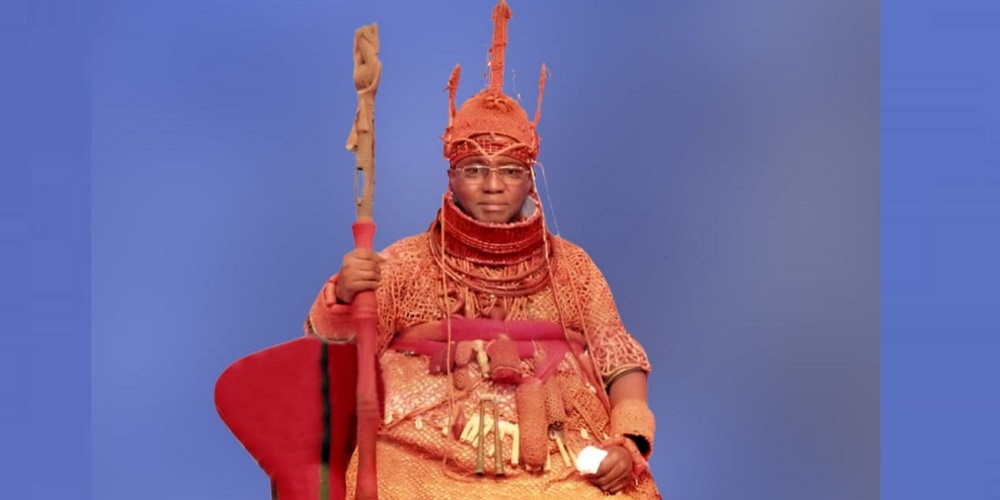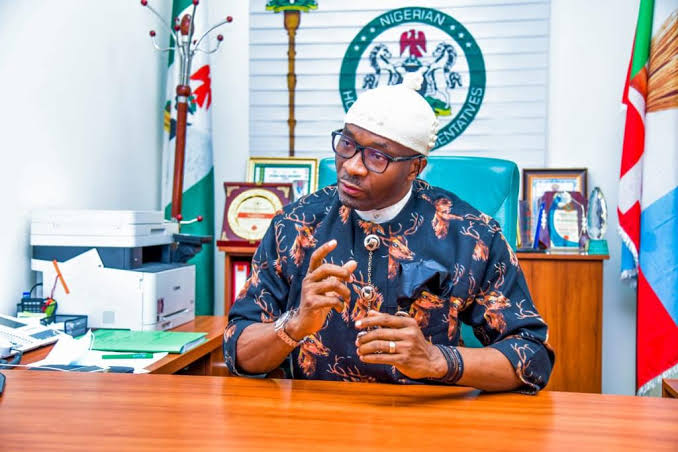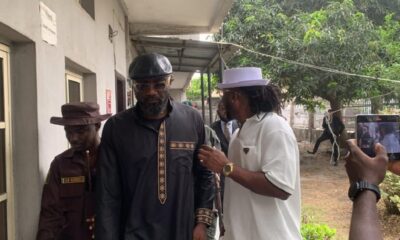News
Oba of Benin to withdraw suit as Okpebholo restores rights

The Oba of Benin, Oba Ewuare II, and the Benin Traditional Council may withdraw the suits they filed against the state government as Governor Monday Okpebholo, on Sunday, restored the full statutory rights of the Oba and reversed the policies of the previous administration that impacted the Benin Traditional Council.
A statement on Sunday by Okepebholo’s Chief Press Secretary, Fred Itua, said the governor abolished the new traditional councils in Edo South created by the immediate-past governor, Godwin Obaseki.
Okpebholo also backed the Federal Government’s recognition of the Oba’s palace as the custodian of repatriated Benin artefacts looted during the 1897 British colonial expedition.
Providing an insight into the governor’s gesture, the state Attorney General and Commissioner for Justice, Dr Samson Osagie, said it signaled the resolution of the crisis between the Oba of Benin and the Edo State government leading to lawsuits duringt the Obaseki’s administration.
Osagies said, “The cases in court are cases which the Oba of Benin himself and the Benin Traditional Council instituted against the state government, and they are all civil matters. And you know that in civil suit or in any suit, parties are encouraged to settle amicably.
“So, if the parties are already settling and one side is already meeting the condition of settlement, the next step you are going to hear is that the party who went to court, which is the Oba of Benin, and the Benin Traditional Council, will instruct their counsel to withdraw the cases from court and that will be the end of the matter.
“The two parties are now settling for harmony and peace to reign, so the government is doing its own side of it.
“This statement is a prelude to discontinuing all legal proceedings with respect to the twin issues of the concession of the Oba Akenzua Cultural Centre by government to the Benin Traditional Council for 30 years and the creation of additional councils.”
The statement by Okepebholo’s Chief Press Secretary outlined the administration’s commitment to restoring the dignity and authority of the Benin monarch.
“This administration also hereby abolishes the new traditional councils in Edo South, created by the last administration,” the statement noted.
Additionally, Governor Okpebhol revoked the decision of the Obaseki’s administration to convert the Oba Akenzua II Cultural Centre into a motor park.
The government announced plans to restore the cultural centre to its original purpose.
“This administration is restoring the Oba Akenzua Centre to a suitable condition for its original purpose,” the statement added.
The governor also reinstated the financial entitlements of the Benin Traditional Council, ordering that the status quo before the creation of the abolished councils be maintained.
According to the statement, Okpebholo affirmed support for the Federal Government’s official gazette, which recognizes the Oba of Benin as the rightful owner and custodian of the repatriated Benin artefacts.
He also distanced his administration from the Museum of West Africa Art, instead backing the Benin Royal Museum project to house the artefacts.
“The Federal Government has also issued a gazette for the recognition of ownership and custody of the repatriated Benin artefacts to the Oba of Benin, Oba Ewuare II,” the statement explained. “Governor Okpebholo respects the rights and privileges of the traditional ruler of Benin kingdom… and pledges the support of his administration to ensure the monarch plays his role as the custodian of the rich cultural heritage of the Benin people.”
Okpebholo reiterated his administration’s respect for traditional institutions and vowed to avoid interference in the internal affairs of the Benin Traditional Council. “The Oba of Benin, as the father of all Benin people, is the sole custodian of the customs and traditions of the Benin people, and my administration respects customs and traditions in the land,” he stated, emphasising the government’s efforts to uphold the cultural and historical integrity of the Benin Kingdom.
News
A Chat with Janet Odio Okolo: A Mother’s Journey Raising a Child with Down Syndrome

News
Hon. Nnamchi Begins Street Lights Deployment In Isi Uzo(Photos)

Honourable Paul Sunday Nnamchi, representing Enugu East/Isi Uzo Federal Constituency in the 10th House of Representatives, has fulfilled his promise to illuminate communities in Isi Uzo Local Government Area.
The lawmaker has just begun the deployment of high-density solar-powered street lights in Ikem Nkwo, marking the beginning of a massive rollout of the street lamps across the communities in Isi Uzo.
This initiative, which started in Enugu East Local Government Area in 2024, aims to support the fight against insecurity in the state which according to him was to add to what Chief Security Officer of Enugu State Barrister Peter Mba had done to secure the state to attracts foreign investments.
The lawmaker expressed concern over banditry attacks, particularly by herdsmen, in some communities within Isi Uzo and Enugu East Local Government Areas in the recent pasts.
He believes that illuminating these areas with high-density street lights would help address the insecurity adding that he was prioritizing border and farming communities in Isi Uzo, where banditry has displaced residents and restricted farming activities.
Communities in Ikem, Eha-Amufu in Isi Uzo which borders Enugu and Benue State and Ugwogo-Nike in Enugu East have been vulnerable to these attacks due to their strategic locations.
News
May Day: Kalu Hails Workers, Applauds Their Role in Nation Building

By Gloria Ikibah
Deputy Speaker of the House of Representatives, Rep. Benjamin Kalu, has extended warm wishes to Nigerian workers as the country marks the 2025 edition of International Workers’ Day.
Kalu praised workers across various sectors for their commitment and resilience, describing them as the engine that keeps the nation moving. He acknowledged their sacrifices and unrelenting drive, especially during tough economic times.
In his message, he highlighted the efforts of the current administration under President Bola Tinubu to improve the welfare of public servants. He referenced the National Assembly’s prompt backing of the new minimum wage as a sign of the government’s seriousness about workers’ wellbeing.
The Deputy Speaker appealed for continued patience and understanding from Nigerians, noting that the ongoing economic reforms, while challenging, are designed to bring long-term relief and prosperity.
Kalu also called for unity, and said the country can only overcome its present difficulties if citizens and leaders work together in good faith.
He therefore urged workers to keep the faith and remain steadfast in their duties, assuring them that brighter days are on the horizon, and wished Nigerian workers a peaceful and fulfilling May Day celebration.
-

 Metro16 hours ago
Metro16 hours agoGunmen storm University of Benin teaching hospital, kill doctor
-

 Metro17 hours ago
Metro17 hours agoFCTA destroys 601 motorbikes over violations
-

 News8 hours ago
News8 hours agoAlleged money laundering: EFCC produces Aisha Achimugu in court
-

 News16 hours ago
News16 hours agoJust in: FG declares tomorrow public holiday
-

 News10 hours ago
News10 hours agoJUST IN: Major General Paul Ufuoma Omu Rtd, dies at 84
-

 News9 hours ago
News9 hours agoTinubu hails Dangote’s World Bank appointment
-

 News12 hours ago
News12 hours agoSAD! Professor’s son takes own life inside varsity staff quarters
-

 News16 hours ago
News16 hours agoFull list: FG approves N110bn to rehabilitate medical schools 18 institutions























